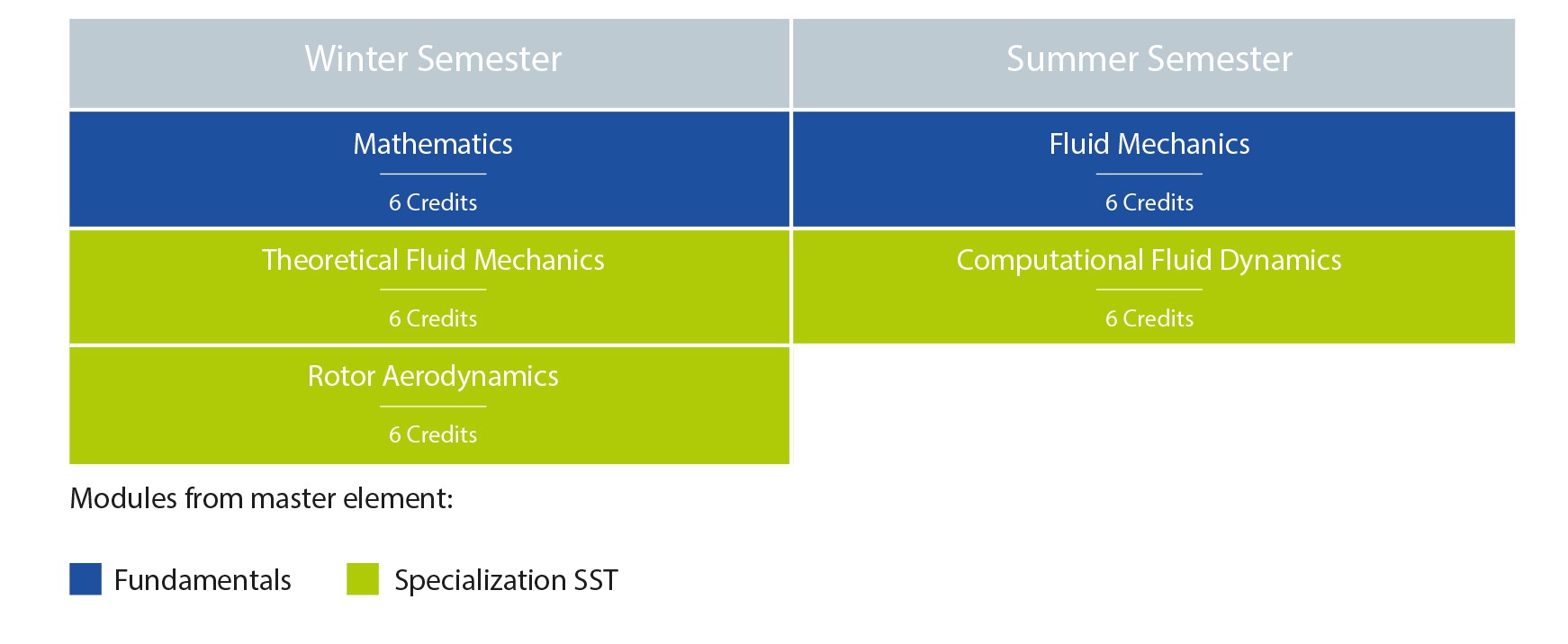Fluid Mechanics of wind energy systems
Profile
This diploma course provides knowledge about mathematics and fluid mechanics as well as computational methods used for the fluid mechanical analysis of wind energy converters for stationary and transient applications. The knowledge about the aerodynamics of rotor blades will be facilitated.
The goal is to enable engineers to apply existing commercial software packages for computational fluid mechanics in a sophisticated manner as a basis for reliable prognoses of the fluid flow around wind turbines, to improve the quality of numerical methods, and to develop realistic models of wind energy systems. These aspects are fundamental ingredients for optimizing current wind turbines and producing innovative new designs with a higher energy efficiency, lifetime, degree of capacity utilization and robustness with regard to extreme load cases.

Overview
Type of program | Part-time online diploma course |
|---|---|
Final degree | Diploma of Advanced Studies (DAS) |
Language | English |
Standard period of study | 2 semesters |
Total credits | 30 |
Program start | Every semester |
Tuition fees | EUR 6.000,- |
It is also possible to only participate in selective courses. A course with 6 Credit Points costs EUR 1.200,-; a course with 3 Credit Points EUR 600,-. For individual books please contact the management team.
Qualification
The participants of this diploma course will gain a strong basis in mathematics, fundamental fluid mechanics and they will understand about classical, current and future numerical methods for the solution of fluid flow models of wind turbines. They will also be familiar with the aerodynamics of wind turbines and hydrodynamics for offshore systems. They will understand the advantages and disadvantages of models and numerical methods and they will recognize which combinations of models and numerical methods can be essentially and trustworthily applied for special kinds of computational fluid mechanics. Furthermore, the students will become familiar with the limitations of the models and numerical methods and they overcome these limitations by writing their own partial programs for special tasks in their professional career. Based on their capability to perform realistic simulations of fluid flow subjected to wind turbines, they will be engineers in charge of the design of current wind energy converters, new developments of detailed aspects and general novel designs of wind turbines.
Certificate Modules

Questions?
Contact us at wes[at]uni-kassel[dot]de.

Diploma Course Director
APPLICATION FORM FOR THE DIPLOMA COURSE